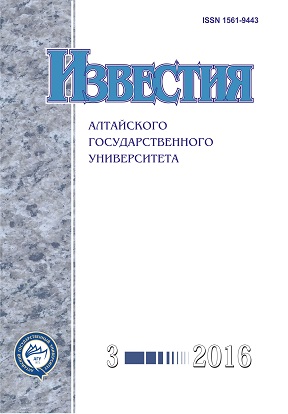Conceptual Aspects of Legal Education
Abstract
The article reveals the issues of the most important methodological principles implemented within the framework of legal education. At present, the emphasis in the training of the future lawyers is made on the forming of skills and abilities; understanding of the law becomes utilitarian in nature and is perceived as a “mechanical” means to regulate social relations. This approach ignores the true nature of law. Law- enforcer concentrates on the literal compliance with prescriptions of law, which as a result causes the deformation of public relations. The legal form itself possesses no spirit, no reliance on the national sense of justice and distinctive legal culture. In spite of the declared primacy of human rights and freedoms, the reality demonstrates that a human as a natural being, whose rights are based on the natural and judicious norms of equality and freedom, falls into the background. Currently a human is more and more alienated from the law, and sometimes is opposed to it. The article presents a brief review of the conceptual aspects of legal education, which allows, in the author’s opinion, identifying the ways to resolve issues of future lawyers’ training.DOI 10.14258/izvasu(2016)3-29
Downloads
Metrics
References
Томсинов В.А. Преступление под названием «Юридический факультет» // Закон. - 2009. - № 3.
Ладыжец Н.С. Университетский барометр евросообщества // Вестник Удмуртского университета. - 2012. - Вып. 3.
Шанин А.А. Европейское пространство высшего образования // Известия Волгоградского государственного технического университета. - 2013. - № 2.
Архипова О.В. Проблема самобытности образования в контексте глобализации // Теория и практика общественного развития. - 2014. - № 10.
Прытков В.П., Селезнев В.М. Проблема самобытности русской науки // Теория и практика общественного развития. - 2014. - № 10.
Олейникова О.Н. Болонский процесс как инструмент интернационализации высшего образования // Вестник Московского государственного гуманитарного университета им. М.А. Шолохова. Серия: Педагогика и психология. - 2015. - №.2.
Алексеев С.С. Теория права. - М., 1994.
Мальцев Г.В. Нравственные основания права. - М., 2008.
Gatto J.T. Weapon of Mass Instruction. - Gabriola Island, BC, 2009.
Dworkin R. Law’s Empire. - Cambridge, MA, 1986.
Fuller L. The Morality of Law. - New Haven, CT, 1965.
Hart H.L.A. Law, Liberty and Morality. - Oxford, 1963.
Lyons D. Ethics & The Rule of Law. - Cambridge, 1984.
Pyle R., Bast C. Foundation of Law: Cases, Commentary and Ethics. - Clifton Park, NY, 2011.
Лапшина И.Е., Аркадьева Т.А., Валеева М.А. Юридическое образование за рубежом (опыт США и ФРГ) // Концепт. - 2014. - № 12.
Синюков В.Н. Правовая система России. Введение в общую теорию. - М., 2013.
Сочнев В.Н., Сочнева И.В. Теоретические основы изучения феномена профессиональной деформации // Вестник Тамбовского университета. - 2010. - Т. 15, вып. 1.
Калугина Н.Г. Некоторые особенности профессиональной деформации следователя // Психодиагностика в правоохранительных органах. - 1998. - № 2.
Izvestiya of Altai State University is a golden publisher, as we allow self-archiving, but most importantly we are fully transparent about your rights.
Authors may present and discuss their findings ahead of publication: at biological or scientific conferences, on preprint servers, in public databases, and in blogs, wikis, tweets, and other informal communication channels.
Izvestiya of Altai State University allows authors to deposit manuscripts (currently under review or those for intended submission to Izvestiya of Altai State University) in non-commercial, pre-print servers such as ArXiv.
Authors who publish with this journal agree to the following terms:
- Authors retain copyright and grant the journal right of first publication with the work simultaneously licensed under a Creative Commons Attribution License (CC BY 4.0) that allows others to share the work with an acknowledgement of the work's authorship and initial publication in this journal.
- Authors are able to enter into separate, additional contractual arrangements for the non-exclusive distribution of the journal's published version of the work (e.g., post it to an institutional repository or publish it in a book), with an acknowledgement of its initial publication in this journal.
- Authors are permitted and encouraged to post their work online (e.g., in institutional repositories or on their website) prior to and during the submission process, as it can lead to productive exchanges, as well as earlier and greater citation of published work (See The Effect of Open Access).








